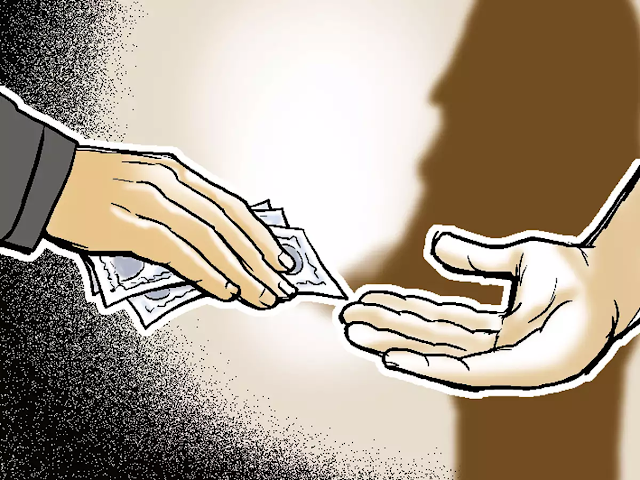SO THERE, ALLAH, WE PASSED YOUR TEST
There are five major and hundreds of minor religions in the world. But don’t worry - yours is the right one. Anon
After Christianity the second biggest globally is Islam. Indonesia, the nation next door, has a quarter of a billion followers, more than any other international state and setting Australia’s xenophobic politicians a-trembling in their emptying pews.
The Republic is supposed to be constitutionally secular but this isn’t the right time for reminders. For last week the majority celebrated the ending of the Ramadan fasting month with huge street prayers drawing tens of thousands.
The crowd-controllers' baggy military-style gear was often far too large for their wiry-frames built from a lifetime of toil. The outfits looked as though they’d come direct from a Gilbert and Sullivan operetta - a camouflage for all seasons and terrains, tropic jungle to arid desert, though the red berets stood out like stuck traffic lights.
Particularly in this pre-dawn environment, the black bitumen of a closed four-lane highway where the officials - farmers normally used to ushering ducks quacking for stubble snails - were supposed to be exercising their authority.
The flashlight wavers in the gloom were too old or poorly briefed, unsure whether they were supposed to be redirecting traffic or stopping it. There were no police present.
In Australia, the chaos would have led to calls for cops and shouts of unseemly language, but this was East Java where confusion is a cultural staple, probably invented in the province.
Elsewhere in the world uniforms encourage obedience or hostility. Here they're an excuse for ignoring duties for an exchange of smokes, supposedly uninhaled for the past month. Tell that to the addicted kyai (leaders).
The presence of a kaffir ('unbeliever' or 'infidel') among the stadium-sized crowds seeming distressed no one. The faithful seemed to be in a good mood; the men in batik sarongs, the heavily made-up women in brightly coloured blouses and long dresses. As a fashion parade, this was an event for sunshades at six am.
Now and again one in total black, just her eyes showing. Here and there a bare-headed rebel asserting her independence yet causing no strife, for this is not uptight Malaysia where socks with the word ‘Allah’ presage the onset of Armageddon.
Kids in their hundreds prove the government's birth control programme isn't working as well as the health workers claim.
The spirit of unity was tangible: We’ve passed the hunger test - we are one. No hint of protest or politics. A few median-strip trees had Free Palestine posters often in English but these were home-made, A4 photocopies.
The targets have long passed; Indonesia hasn’t recognised Israel since 1948 and despite pressure and inducements from the US has shown no inclination to change, even before the Gaza War. The last synagogue in the provincial capital Surabaya was demolished this century. Dutch-era graves in an old Jewish cemetery were brutally trashed during the Japanese occupation 1942 - 45
The bigger statements in the street of prayer were made by the baccy companies, their giant ads claiming fitness and financial success are all yours at the cost of three Oz bucks for a pack of 20.
The religious would have attributed the huge turnout to piety, while the KTP (ID card) Muslims (wedding-n-wake in Protestant terminology) were motivated more by carnal desires, knowing the end of the one-month fasting ordeal leads to the Idul Fitri celebrations, nosh-ups of spectacular proportions.
The seating arrangements were below basic, worshippers squatting cross-legged on the tarps. The ancient and disabled used the kerbstones.
This was a hard place for a Westerner with an ageing carcass; your correspondent encountered no hostility but preferred to stay on the sidelines seeking but never finding a spot more comfortable.
The men were gathered at the front - the women far behind. It was explained this ensured the minds of randy blokes were centred on the preacher and not the glorious ocean of big bottoms revealed when the kneeling ladies touched the road with their foreheads while facing Mecca.
Like Christianity, Islam in Indonesia is split. The laid-back Nahdlatul Ulama (revival of the scholars) is at home here in East Java, the province where the organisation was founded in 1926 in nearby Jombang.
In the cemetery there’s a simple grave holding the remains of an NU leader, the delightful eccentric Abdurrahman Wahid (1940 - 2009). Also known as Gus Dur, Indonesia's fourth president was a preacher of tolerance and a real friend of Australia. His daughter Yenny Wahid worked as a press journalist with what is now Nine Entertainment
NU claims about 100 million members, largely because it’s more accepting of traditional pre-Islamic practices than the smaller Muhammadiyah (followers of the prophet Muhammad) with 60 million. These figures are as suspect as some of the stories explaining beliefs.
Muhammadiyah takes a more literal approach to religion and attracts the intelligentsia, running hospitals and more than 100 universities across the Republic. Talking to adherents requires the use of scientific logic, while NU devotees call on spirits, black magic and other challenges to bolster their reasoning.
This year NU recognised Idul Fitri on 10 April by checking sightings of the new moon. Muhammadiyah reckoned it came a day later so celebrated - though more soberly - a day later. The committed didn't gather in the streets; they favour fields. Such spaces are rare, and getting harder to find as the population blooms.
Although the night sky of Java is heavily shrouded by the rainy season clouds, the religious scholars can see clearly than lay folk. Either that or they take a stab at lunar spottings to pronounce the day has come, and with it the joys of arrival at the feast.
May there be many more.
##
First published on 16 April 2024 in Pearls & Irritations: https://johnmenadue.com/ok-allah-we-passed-your-test/








